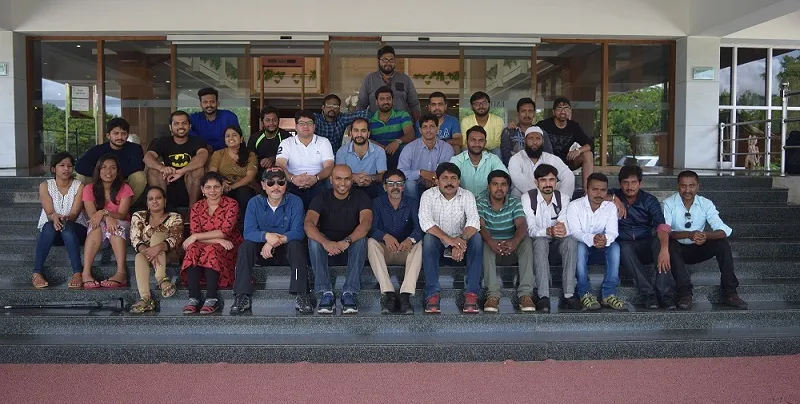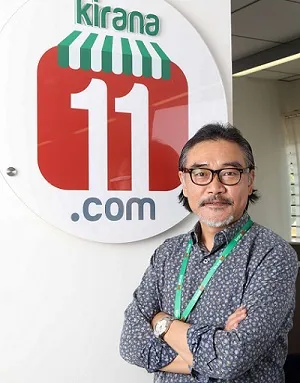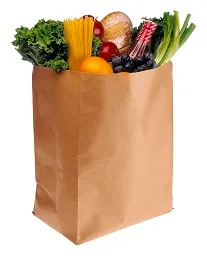Bengaluru-based Kirana11 aims to take on BigBasket, Amazon and Flipkart in grocery
Grocery startup Kirana11 piloted operations in November 2016 by onboarding more than 120 kirana stores in five localities.

When starting up in Indian retail, South Korea-based Nakkyun Chong considered 14 categories – including fashion and electronics -- and decided to launch ‘Kirana11’ in the grocery segment as the first step. The reason was simple - grocery is one of the largest categories in the retail market in India. Chong comes with over 28 years of global experience in online commerce and is the founder and CEO of Planet11 Ecommerce Solutions.
According to advisory firm Technopak, India is the sixth-largest market for grocery in the world with shopping expected to rise from $383 billion a year and touch $1 trillion by 2020. Even if 1% of it is online, there is a huge opportunity for multiple players in the space.
But Chong does not want to be one among many players in the game. He is aiming for Kirana11 to be the number one in Bengaluru – the home turf of online grocery market leader Big Basket- in a year.
How it works
Primarily an O2O platform, Kirana11 follows a hybrid model of B2B2C and Hyperlocal. They aim to connect kirana stores to customers as well as distributors, and also help small sellers digitise shop management.
Hyperlocal model in grocery is about getting the ordered products from local stores and delivering it directly to the customer. But Kirana11 has only onboarded those kirana stores that have their own delivery functions - about 160 so far, from small to big supermarkets.
Users can place an order from a kirana store on Kirana11’s website or app after registering with their location. In case the store cannot deliver to any particular area, Kirana11’s emergency delivery unit will do the delivery. Additionally, through its B2B arm, Kirana11 supplies fruits and vegetables to the stores, and plans to expand into FMCG later.
Solid plan

In India, Chong has worked in Delhi and Gurgaon over the last few years. But for starting up, Bengaluru was the obvious choice. “The Silicon Valley of India offers the perfect talent pool; hiring the best engineers and developers was easy,” he says.
Kirana11 piloted operations in November 2016 by onboarding more than 120 kirana stores in five localities. By October 2017, they had covered 11 areas in east and south of Bengaluru, and are aiming to cover 18-20 more areas by December.
Kirana11 gets a commission of 3-10 percent depending on category and margins. (FMCG is about 3-4 percent; vegetables is 10 percent.) Minimum amount for free delivery in FMCG is Rs 500, and for vegetables and fruits it is Rs 250
Just like the market leader BigBasket, which has found success in its private label strategy, Kirana11 also plans to launch its private label in some categories including fresh meat, organic vegetables, seafood, frozen food and imported goods which local kiranas selling regular FMCG do not have.
So what is new?
Chong believes that the first step to satisfying the consumer is by providing service of highest quality. According to him, e-commerce is a service; but in the current ecosystem, what the providers lack is reliable service.
Kirana11 aims to give the best in product, quality, price, delivery, and after-service. Chong explains, “Customers have to trust us to keep coming back. So, our motto is to ‘Say Yes’. We assure that whatever their issue is, we will resolve within three hours.”
The name Kirana11 itself refers to this attention to quality. “If 10 is the perfect score, 11 is even better. It also shows one to one communication,” says Chong.
Kirana 11 claims to have spent about $1 million for market research purposes alone.
E-commerce is a long-term game
E-commerce boomed in South Korea in 2003-2004. Although fashion is the highest margin category in e-commerce, an online platform for Asia’s biggest fashion manufacturers took four years and a dedicated team of 60 people going to each shop, to onboard sellers. Chong says, “We cannot just offer an online platform to the sellers and expect them to come on board. They need to be trained. It takes time and investment.”
There is an online community of kirana owners, who have signed up with Kirana11, where they engage with each other to discuss customer acquisition and retention, order quantity, product expiry, returns etc. It also acts as a learning forum to educate kirana owners, in regional languages, about modern business practices and how they can make operations more profitable.

A 3-level certification programme is designed to help kirana owners overcome challenges in a competitive market. Upon completion, the sellers will be awarded a certificate for high standards of quality.
To ensure best customer service and avoid any compromise in quality, Kirana11 does not outsource IT and logistics. They acquired Wishary Technologies for building their tech, and has a team of 60 in their delivery team. They plan to build cold supply chain too, as it is more controllable without third parties. Kirana11 has a team of 120 in total.
Marketing tricks
Kirana11 targets professionals and homemakers who shop for grocery and frequently use internet. With Flipkart, Amazon, and BigBasket enjoying great brand recall with Indian e-shoppers, how does Kirana11 fight it? “We have outdoor billboards, media presence (except on TV), and our brand signboard on all our partner stores,” Chong says.
Regardless of strong branding, e-commerce in India is largely dependent on discounts, at least for customer acquisition. Kirana11 wants to do it in a different way. Chong explains: “If you shake the phone for 11 seconds, you get a discount coupon. This campaign, called ‘Shake Shake’ was hugely successful in Turkey when I was working there.”
Future plans
Kirana 11 started with $3 million from Chong’s personal savings. They have not received VC funding yet, but Chong says they will need $1.5 million by the end of this year and $11 million next year.
Kirana11 aims to take a big bite out of a pie in a market which has seen few successes. Gurgaon-based Peppertap and Mumbai-based LocalBanya shut shop within two years of launch, whereas Flipkart’s grocery experiment was shut down early in 2016. In fact, the ten-year-old unicorn is preparing to re-enter the segment this year, while its rival Amazon has already established itself.
BigBasket – which remains the undisputed market leader, with 85 percent market share (according to a Goldman Sachs report) - is in talks with Paytm and Alibaba to raise funds. Interestingly, all the successful ones follow inventory based model.
However, according to the KPMG report, retailers will prefer operating in omni-channel rather than single channel. Chong believes that in ten years, only modernised grocery stores and large scale supermarkets will survive because big brands are keen on entering India. “Tier II cities will also follow, as modernisation and urbanisation are happening fast in India,” he states.
By March 2018, Kirana11 aims to get 2000 orders per day (their pilot saw 372 per day). They claim that they are bigger than Amazon for grocery in Bengaluru. In Planet11’s long-term plan, grocery is only the beginning. In the future, Chong wants to bring other lifestyle categories- like fashion, kidswear, cosmetics etc.- as separate entities under Planet 11.
Kirana11 plans to expand to Mumbai and Hyderabad after building a stable business model in Bengaluru.







